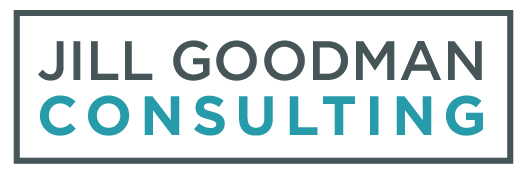3 Development Myths
When I work with client schools to expand development capacity, I want to understand the experience of both the administration and the board. My conversation with the Director of Development leading a small shop in a mid-sized school went something like this:
DoD: I really thought I would have more board support here.
JGC: In what ways?
DoD: I could raise a lot more money if the board would give at the level they should and introduce me to community members capable of large gifts. If the board wants to increase my goals arbitrarily, they need to help me meet them.
JGC: Do the trustees know their giving expectations and that you expect them to make connections outside the school?
DoD: How could they not know? That’s what trustees are supposed to do!
JGC: Have you had one-on-one conversations with each trustee to understand their interests, connections, and capabilities surrounding development?
DoD: No. Am I supposed to do that?
My conversation with the board chair went something like this:
Board Chair: We have committed to creating a more inclusive and accessible education at our school. The only way we can do that is by raising more money. We need you to help the Director of Development raise more money to meet our budgetary goals. I’m not sure she is the right person for the job, to be honest.
JGC: I see. What do you see as the board’s role in development?
Board Chair: I have no idea. I am happy to lend a hand in whatever way will be helpful. I’ve been waiting for direction or coaching, but no one has said anything, so I assumed the development team was handling it.
JGC: When new trustees join the board, does anyone have a frank conversation about expectations for giving to the annual fund and special initiatives?
Board Chair: Not really. Years ago, we used to expect trustees to make leadership gifts, but as we created a more diverse board, that conversation felt increasingly uncomfortable. So, we hope for the best. But I am aware that about 25% of the board is not giving anything, and I’m not sure how to remedy that.
I find this disconnect fascinating and prevalent. Very few schools have a board of trustees engaged in development efforts in a meaningful way. Frank and clear communication are at the core of the disconnect, but there also seem to be myths that need to be busted to move forward together.
Three myths of development:
MYTH 1. All trustees must be ready and willing to ask people for large gifts for the school. Most trustees are not comfortable with asking and likely would not be great at it. Being part of an “ask“ process takes skill, motivation, and there is an art to it. However, all trustees can be effective in stewarding donors. Also, each trustee must make the school one of their top three giving priorities each year with a gift that is personally meaningful for their family.
MYTH 2. There is a donor out there who can save our school with one significant gift. That is the myth of the Big Fish. That donor or organization is likely interested in something other than your school or meeting with your development director. It is not a good use of her time to try, in vain, to connect with the Big Fish. Trustees who can make a thoughtful and intentional connection between members of their network with the capacity to advance the school and school administration should do that.
MYTH 3. Big events are the best way to raise money and build community. Big events, like your auction or gala, are the least cost-effective way to raise money and the least likely to develop solid relationships with donors who can advance your mission. Likely, 40% or less of current parents attend. As your program matures, your development team should spend more time building the individual giving program and less on big fundraising events.
I find myths and disconnects swirling around most schools, and it’s at the heart of the frustration and misunderstanding on all sides of the development table. Let’s talk about ways to bust some myths together.
The author, Jill Goodman, is a consultant working with independent school leaders to advance their school’s mission, enhance their processes, and bolster their skills. Learn more about all services here.



